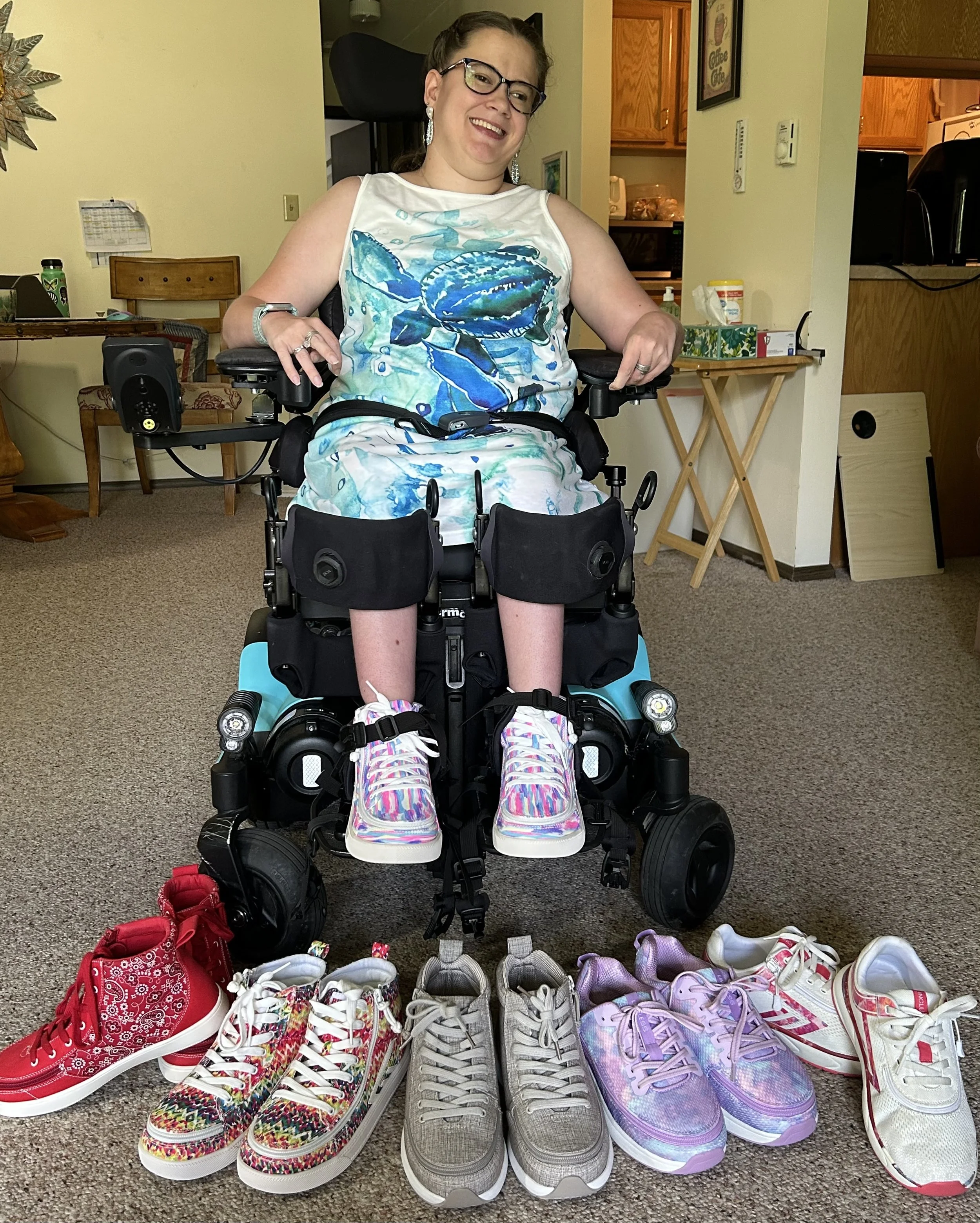What Is Ableism? Why It's Hard to Define—and Even Harder to Live With
My ever-growing collection of Billy shoes
One of the questions I get asked a lot is: “What’s a standard definition of ableism?” And honestly, I always find it hard to answer. Not because I don’t know what ableism is, but because it looks and feels different for everyone—especially depending on the nature of their disability.
For me, ableism isn’t just about people assuming I can’t do something. It’s also about people underestimating my autonomy in ways that go beyond my disability. For example, I often get mistaken for someone much younger than I am. I just turned 35 this past June, but most people assume I’m barely over 20. That might sound flattering to some, but it becomes a problem when people question whether I should be drinking alcohol or making adult decisions—just because of how I look or move through the world.
Then there’s the issue of being congratulated for doing completely normal, everyday things. Going to the grocery store. Attending a wedding. Just existing in public. These aren’t heroic acts—they’re just life. But people often treat them like they’re extraordinary, and that’s where the term “inspiration porn” comes in. It’s when disabled people are objectified for the benefit of non-disabled people, who feel inspired just by our existence.
A prime example? The day after my cousin’s wedding, a woman came up to me, my mom, and one of our foreign exchange students and said, “It’s so good to see you out in public! I have a niece who’s disabled and her family hardly ever takes her anywhere.” I wasn’t trying to make a scene so I kept my mouth shut, but I would have responded, “I feel sorry for your niece, because all I’m trying to do is live my life—not receive praise for daily activities.”
What makes these moments even harder is when my own family members give people like that the benefit of the doubt. They’ll say things like, “She was just trying to be nice,” or “Maybe she didn’t mean it that way.” But when you experience these microaggressions constantly, it doesn’t feel like innocent ignorance—it feels like a pattern of people choosing to be unaware, or worse, trying to make themselves look good at our expense.
Another example: I was on a trip with three family members when a stranger walked into the back of my chair and then yelled at me for it. One of my relatives stood up for me in that moment, which I appreciated. But later, when we got to a restaurant and the waitress gave me a child’s plastic cup without a lemon—unlike everyone else—they all made excuses for her. I didn’t want to make a scene, so I just asked one of them for their lemon. But it stung. Again.
This is why defining ableism is so complicated. It’s not just about overt discrimination. It’s about the subtle, everyday ways people doubt our intelligence, our abilities, our independence. It’s about being used as a feel-good story. It’s about being underestimated, overlooked, or infantilized. And it’s about how even the people closest to us sometimes don’t see it—or don’t want to.
So no, I don’t have a “standard” definition of ableism. But I know what it feels like. And I know I’m not alone.
ableism noun
unfair treatment of or negative attitudes towards disabled people
Oxford Dictionary
